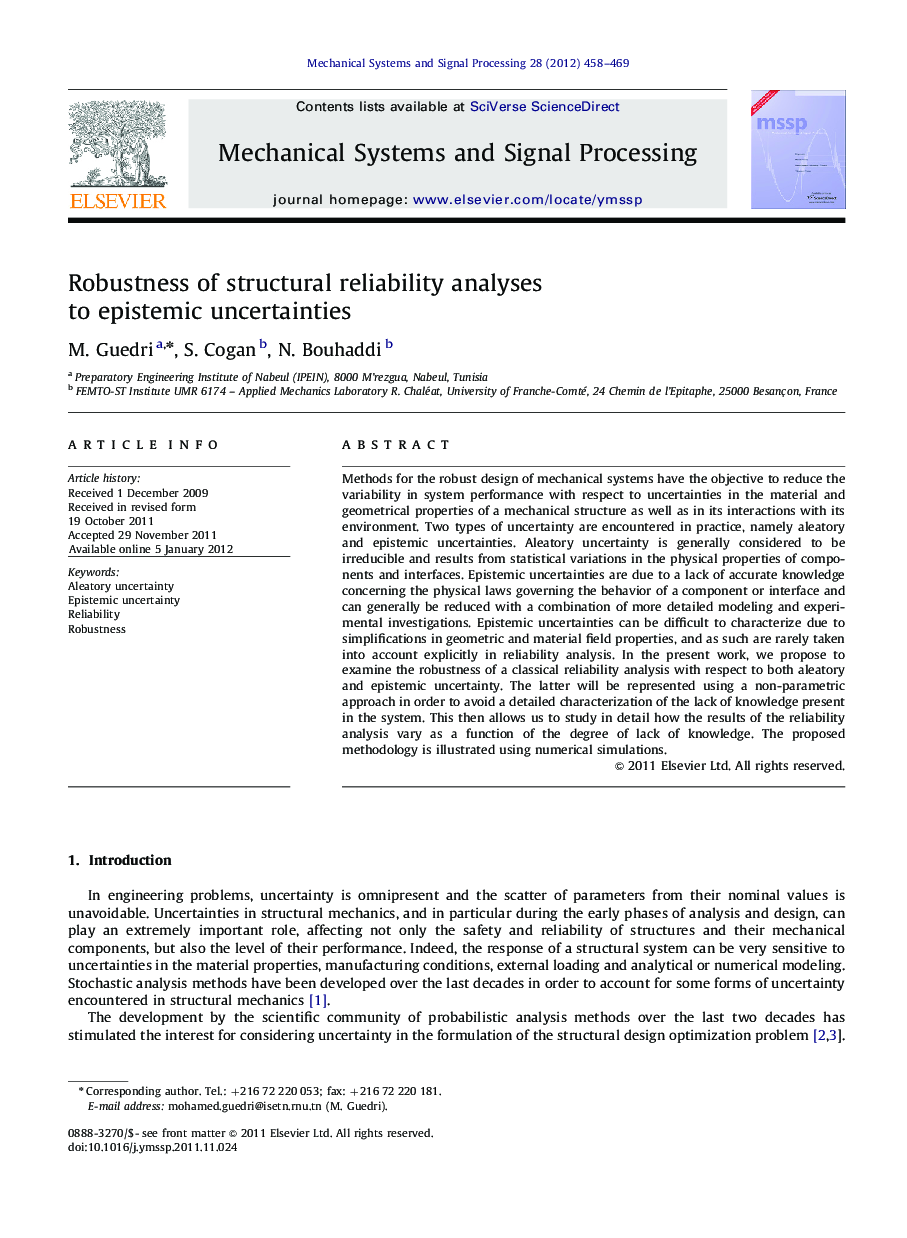| Article ID | Journal | Published Year | Pages | File Type |
|---|---|---|---|---|
| 559497 | Mechanical Systems and Signal Processing | 2012 | 12 Pages |
Methods for the robust design of mechanical systems have the objective to reduce the variability in system performance with respect to uncertainties in the material and geometrical properties of a mechanical structure as well as in its interactions with its environment. Two types of uncertainty are encountered in practice, namely aleatory and epistemic uncertainties. Aleatory uncertainty is generally considered to be irreducible and results from statistical variations in the physical properties of components and interfaces. Epistemic uncertainties are due to a lack of accurate knowledge concerning the physical laws governing the behavior of a component or interface and can generally be reduced with a combination of more detailed modeling and experimental investigations. Epistemic uncertainties can be difficult to characterize due to simplifications in geometric and material field properties, and as such are rarely taken into account explicitly in reliability analysis. In the present work, we propose to examine the robustness of a classical reliability analysis with respect to both aleatory and epistemic uncertainty. The latter will be represented using a non-parametric approach in order to avoid a detailed characterization of the lack of knowledge present in the system. This then allows us to study in detail how the results of the reliability analysis vary as a function of the degree of lack of knowledge. The proposed methodology is illustrated using numerical simulations.
► This paper investigates the robustness of a classical reliability analysis with respect epistemic uncertainty. ► Distributed uncertainty in an elastodynamic system is represented using a non-parametric approach. ► The associated dispersion parameter is difficult to estimate and is treated as an epistemic uncertainty. ► An Importance Sampling approach is used in the reliability analysis to reduce calculation time.
